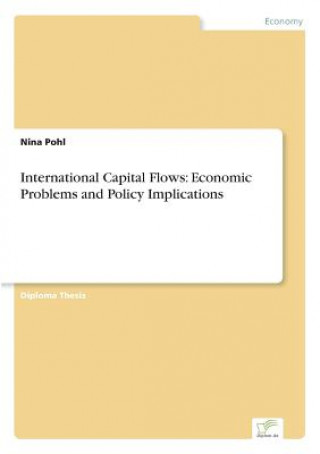
Livraison
Guide d'achat
16 124 818 livres à l’intérieur 175 langues






Afficher toutes les langues (175)
2 047 051 livres numériques à l’intérieur 101 langues






Afficher toutes les langues (101)





Cela ne vous convient pas ? Aucun souci à se faire ! Vous pouvez renvoyer le produit dans les 30 jours
 Bon d’achat
n'importe quelle valeur
Bon d’achat
n'importe quelle valeur
Impossible de faire fausse route avec un bon d’achat. Le destinataire du cadeau peut choisir ce qu'il veut parmi notre sélection.
International Capital Flows
 Anglais
Anglais
 395 b
395 b
 common.delivery_to
common.delivery_to
Politique de retour sous 30 jours
Ceci pourrait également vous intéresser


Diploma Thesis from the year 2000 in the subject Business economics - Economic Policy, grade: 1,0, Christian-Albrechts-University of Kiel (Wirtschafts- und Sozialwissenschaften), language: English, abstract: Inhaltsangabe:Abstract:§This paper deals with three highly controversial aspects in the international finance literature: the degree of international financial integration, the economic impact of capital mobility, and the potential role of capital controls in the emerging international financial architecture.§Regarding the first aspect, many observers have been influenced by the recent hype about globalisation and in fact take it for granted that capital markets have become almost fully integrated into a world financial marketplace. This paper, reviews evidence that challenges this conventional wisdom, though confirming that the degree of international financial integration is rising.§With respect to the second aspect, it is demonstrated that there are circumstances under which the free flow of international capital could negatively impact upon economic performance and/or otherwise welfare-enhancing domestic policies. This finding conflicts with traditional theory and provides an economic rationale for the judicious introduction of capital controls.§With this assertion in mind, the final aspect, the role of capital controls, is investigated. The specific question explored is how far restrictions on international capital flows are able to avert a costly economic imbalance arising from fluctuations in the balance of payments. Although the international consensus seems to have shifted in recent years towards promoting Chilean-style capital controls as a potential new building block in the international financial landscape, this paper cautions against such a generalisation of the Chilean experience. Rather, a review of the empirical literature suggests that much of Chile s economic success story in the last decade can be explained by factors other than its control regime.§The rising degree of international financial integration enhances the need for small countries to resolve their dilemma of being dependent on external funding and, at the same time, most vulnerable to sudden reversals of international capital flows. Yet, simple solutions of how to counterbalance the potential threats of capital mobility in a second-best equilibrium, are not found to be easily forthcoming. In particular, this paper argues that capital controls are no panacea even less so, if they delay necessary macro- and microeconomic reforms.§A worrying feature of the international financial system, partly due to continued innovations in financial engineering, is that short-term capital flows appear to have become increasingly detached from economic fundamentals. As such, how much this trend will further curtail governments unilateral efforts to withstand financial destabilisation, in spite of a healthy macro- and microeconomic economy is an important question for future research. Further, understanding whether or not this provides a case for greater international economic policy co-operation, is equally prudent.§Inhaltsverzeichnis:Table of Contents:§1.Introduction and Overview1§2.The Degree of International Financial Integration3§2.1.Saving-Investment Correlations3§2.1.1.Non-Fundamental Causes5§Model-Specific Sources of Bias5§Sampling and Measurement Bias7§Evidence of Endogeneity8§Evidence of a Sampling Bias9§Evidence of the Large-Country Effect11§Interim Assessment12§2.1.2.Fundamental Causes13§Capital Controls13§International Risk Diversification15§Ultrarational Households15§2.1.3.Summary16§2.2.Arbitrage Tests18§2.2.1.Concepts of Interest Parity18§Uncovered Interest Parity18§Covered Interest Parity18§Real Interest Parity19§2.2.2.Measurement21§2.2.3.Empirica...
À propos du livre
 Anglais
Anglais
Catégories


 Contact
Contact Comment faire ses achats
Comment faire ses achats















